After more than a century, the possibility of Irish reunification seems quite real these days. While the timeframe and the actual probability remain very much unclear, there’s no question that Northern Ireland is tentatively exploring joining the Republic of Ireland.
If you’re younger than 40, this may sound unremarkable. Indeed, more remarkable to you might be that the 1.9 million residents of the island’s six northeastern counties were divided from the 5 million ethnically similar residents of the other 26 counties in the first place. A land of roughly the same size and population as Indiana—and one even more ethnically homogenous than Mike Pence’s home state—seems to modern eyes an unlikely place to have ever been partitioned. With religion generally in decline across the West for years now, younger Americans would understandably wonder how divisions between sects of Christians could really merit such a schism.
America, where political violence has been on the rise and public discourse is dominated by a seething anger, would seem a far likelier candidate for such a rift. Issues of race, ethnicity, and culture dominate even prosaic conversations like stopgap budget bills. Leading members of rival sects trade hateful insults. Intellectuals excuse violent acts by their cohorts as really being the fault of the other side. Factions increasingly disagree on even basic information. Without a homologized ethnicity like Ireland’s, America would seem to be much more suited to being split in at least two.
For those of us old enough to remember any of the bombings, mayhem, and brutality in the decades before 1998’s peace accords, though, the division of Ireland seems tragically logical. From the time the border went up in 1921 to nearly the turn of this century, what was euphemized as “The Troubles” was proof that even amid modernity and progress, the human capacity for savage cruelty could not be banished.
But looking ahead to Northern Ireland’s elections in May, Sinn Fein is the frontrunner to win a plurality in the territory’s assembly. The significance of having what began as the political arm of the terrorist Irish Republican Army lead the government in Belfast should be lost on no one. But what would follow? Would such an outcome foreshadow a return to the violence that killed thousands and locked Northern Ireland in misery for decades? Or could it point toward a peaceful unification?
Traveling in the U.S. last week to seek American support for maintaining the institutions and the process that came out of the 1998 Good Friday Agreement, Sinn Fein President Mary Lou McDonald said the coming decade would see a united Ireland. Her answer when asked by audiences and interviewers how that will happen in a place so haunted by hatred and division was a variation on the same theme: “We demonstrate that politics works.”
One of the things driving the changes in Northern Ireland has been Britain’s departure from the European Union—itself a reflection of what happens when politics don’t work. Under the terms of the 1998 accords, the border between Northern Ireland and the Republic of Ireland was opened, allowing unrestricted travel and trade. But that was when Britain and Ireland were both EU countries. After Brexit, open borders aren’t really an option, but figuring out how to meet requirements for the flow of people and goods without significant disruptions still bedevils leaders on all sides.
The fear of the mostly Protestant Unionists who favor remaining part of the United Kingdom is that they will be caught between Brexit and the Good Friday Agreement. Britain can’t shut the border with Ireland under the terms of the truce, but it also can’t have an open border with an EU country under Brexit. It would be simpler to apply Brexit restrictions on trade and travel between Northern Ireland and the rest of the U.K. But the Unionists are a key bloc in Britain’s Conservative majority government and would take such a move as a serious offense. Meanwhile, the fear among many in the sizable Catholic minority—probably about 40 percent of Northern Ireland—is that Prime Minister Boris Johnson and his government will put Brexit ahead of the peace accords and harden the border with Ireland. In a place where bullets trumped ballots for generations, this is far more than just a discussion about delicious sausages.
What McDonald and Sinn Fein are asking here is a lot given the well-deserved mutual mistrust between the factions. She needs the Unionists to stay in the system that came out of the 1998 accords. The assembly dissolved itself in 2017 and remained dark for three years, an outcome not entirely bad for fans of the status quo. Many Unionists may prefer no home rule to a system that may lead to unification. She needs members of her own side to believe that the Presbyterian royalists across the aisle are not just partners in peace, but allies for building a new future. That means assuring them of the kinds of protections as a minority in a unified Ireland that Catholics were once denied as part of the U.K. To do those things, Sinn Fein President McDonald and her party will have to show that, indeed, “politics works.”
It’s the same here, where we’re moving in the opposite direction as Ireland. Our broken political process has hardly been without advantages for either side. We have, thanks in large part to our dumb primary system, reverse-engineered a kind of parliamentary system here. The two parties refuse to work together on the most important questions, preferring to wait until frustrated voters throw the bums out. Then, the windfall party grabs as much as it can for its faction before things invariably bog down and the cycle repeats. Most voters may be frustrated, disgusted, and increasingly apathetic, but the core constituency of the sect is satisfied – they either get what they want or nothing happens at all.
Americans serious about not falling behind Northern Ireland for political stability and unity would do well to follow McDonald’s advice and show that politics works. It doesn’t mean voting against your interests or betraying your ideals. It means that there is a new urgency for finding the places where we can, when we can to prove to ourselves that politics, not partition, is the answer.
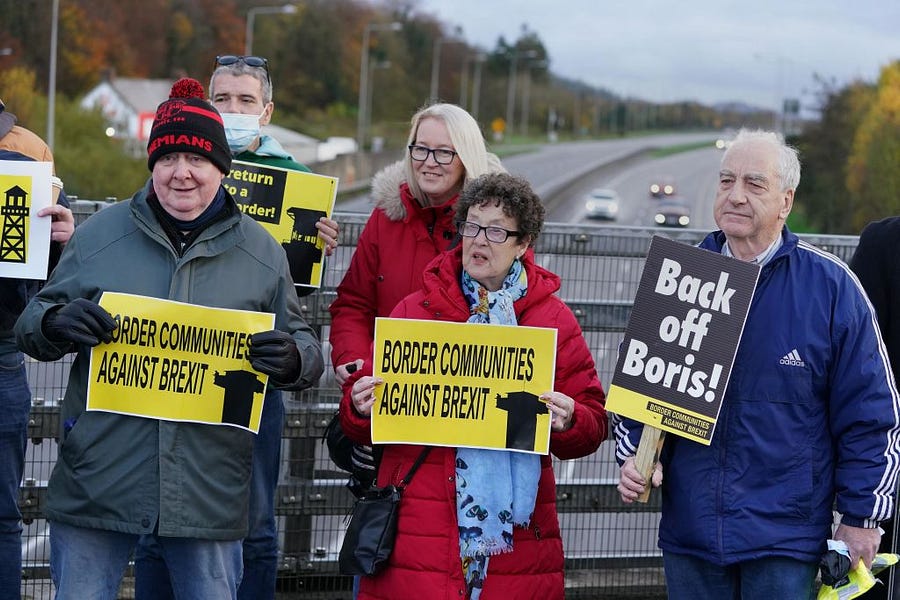

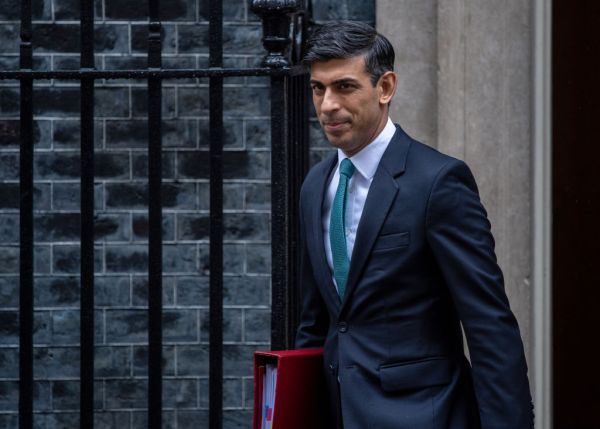
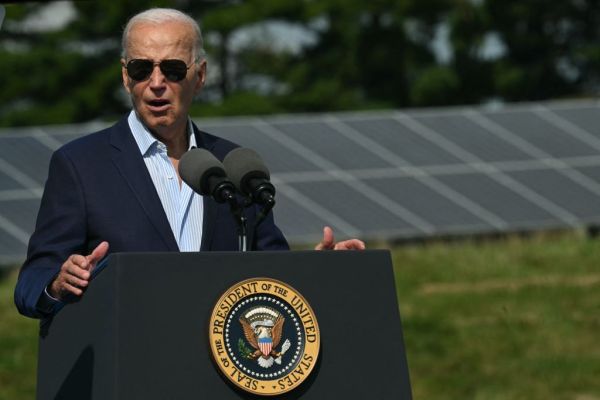
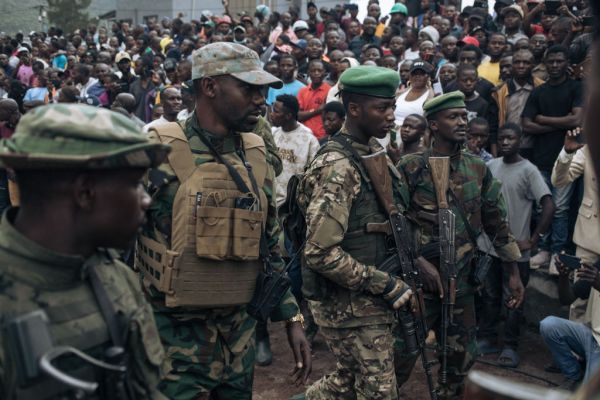

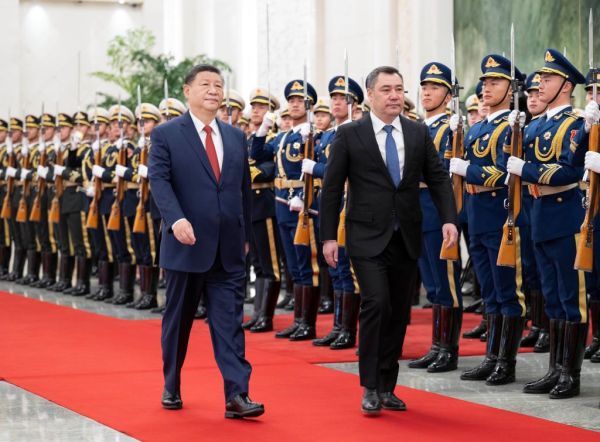

Please note that we at The Dispatch hold ourselves, our work, and our commenters to a higher standard than other places on the internet. We welcome comments that foster genuine debate or discussion—including comments critical of us or our work—but responses that include ad hominem attacks on fellow Dispatch members or are intended to stoke fear and anger may be moderated.
With your membership, you only have the ability to comment on The Morning Dispatch articles. Consider upgrading to join the conversation everywhere.